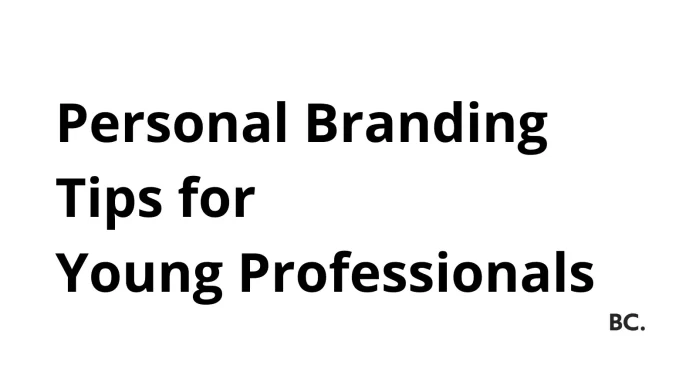Marketing your personal brand is simply a necessity in the digital age we live in.
Regardless of your industry — graphic design, finance, or tech — the marketing principles can help you boost your career. Here are some tips to help you market your brand more successfully.
Table of Contents
1. Understand Your Brand
The first step to marketing your brand is understanding what it’s all about in the first place.
What Is Your Brand?
Your brand is essentially your professional identity. Think of it as a combination of the following elements:
- Your skills
- Your values
- Your personality
- Your experiences
To identify and flesh out your brand, start with a self-assessment. What are your strengths? What values are important to you? How do you want to be perceived by colleagues and peers within your industry?
If you’re a financial professional, part of understanding your brand could be identifying the niche you want to focus on, such as investment strategies or retirement planning.
Identify Your Unique Selling Proposition (USP)
Consider what sets you apart from your peers or how you can stand out in your field (or at least in a group of job applicants). It could be that you have extensive knowledge of a certain subject, thrive at connecting with clients on a personal level, or take a skilled approach to problem-solving.
Incorporate Your Long-Term Career Goals
Your brand should reflect your long-term career goals. Where do you want to be career-wise in five to 10 years? What sort of impact do you hope to make in your industry? Answering these questions provides a roadmap you can follow to market your personal brand effectively. Remember to be authentic, as authenticity builds trust.
2. Establish a Digital Presence
You’ve identified your brand — what now? The next step is establishing a digital presence to expand your network, showcase your skills, and reach a broader audience. Right now, LinkedIn is the professional platform of choice for many individuals. It can serve as your online resume and a social media springboard where you can network with key individuals who can help you advance your career.
Optimize your profile by including a professional photo, a concise yet compelling headline, and a detailed, well-written summary. You should also consider joining groups related to your industry so you can participate in discussions and network.
Depending on your situation, you may also want your own website. You should have an online portfolio if you’re a graphic designer or creative. If you’re a financial professional, consider starting a blog where you can share your thoughts on industry trends and provide helpful tips to establish yourself as an expert.
3. Network. Then Network Some More
Building relationships and connecting with others lies at the heart of personal branding. If local industry events, professional organizations, or conferences occur nearby, consider attending armed with business cards or QR codes linking to your digital presence. For virtual networking, join LinkedIn groups or other social media groups that can add value to your brand. Additionally, explore innovative approaches like wristband marketing to enhance your brand’s visibility and engagement.
4. Content Is King
You might have heard the phrase “content is king,” but what does that mean, exactly? It means that high-quality content is the foundation of any successful marketing strategy.
Don’t post on social media just for the sake of posting. Instead, dedicate time to creating and sharing content showcasing expertise, sharing essential knowledge, or engaging with people on your platform.
Your content doesn’t have to look the same as everyone else’s. You can create content via:
- Podcasts
- Blogs
- Videos
- Infographics
- Any combination of the above
Just remember that quality is far more critical than quantity.
5. Be Consistent
Quality is key, but it’s also important to be consistent. Maintaining consistency in your posting, brand voice, and overall message will help you expand your reach and build trust with your audience. Wherever you market yourself, be it on LinkedIn, a website, or various social media platforms, make sure your message is consistent.
The Pay-Off of a Personal Brand
Creating and sharing your personal brand is a significant upfront investment, but the payoff can be worth it. Having an established personal brand shows that you take yourself seriously as a professional and are interested in sharpening your skills and elevating your career overall.
Don’t be afraid of hard work. Keep your eyes on the prize and enjoy the reward!








